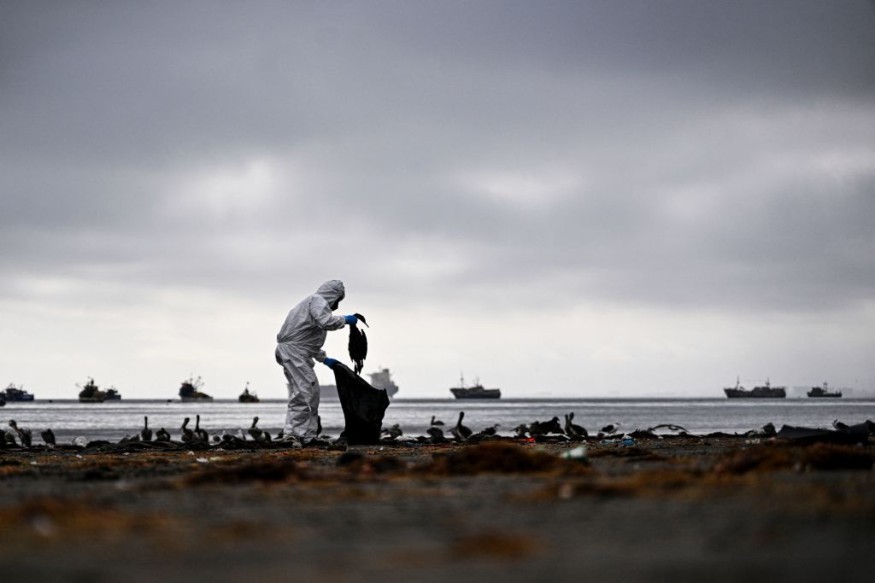
800 dead birds are found along the UK coasts as a result of the second wave of the avian flu outbreak in the area.
Avian Flu Outbreak on UK Coasts
The UK is currently experiencing its most severe outbreak of avian flu to date, with thousands of infected seabirds found along the coast even during the summer months.
This has prompted the RSPB to issue a warning, seeing the situation among seabird populations as a potential crisis turning into a catastrophe.
Although the UK Health Security Agency (UKHSA) reassured that the risk of avian flu to humans is low, the safety of beachgoers is of utmost priority and it is essential to remain cautious.
Numerous deceased birds suspected of being carriers of avian flu have been found on beaches nationwide, including popular tourist spots like the south Pembrokeshire coast, the Isle of Man, and the Sefton Coast near Blackpool.
Not all tourists may be aware of warning signs, so the National Trust is taking proactive steps to educate visitors about the risks linked to bird flu.
The National Trust is responsible for watching over a large portion of the Pembrokeshire coastline.
To safeguard beachgoers, experts remind the public that it is advisable to keep pets on leashes, avoid contact with deceased or sick birds, and promptly report any concerning sightings to the police.
Second Wave Takes Down 800 Birds
Bird flu spreads by close contact between infected birds and their feces, although being extremely rare in human infections, according to the CDC.
Indicating the devastation caused by the second wave of bird flu in the region, James Parkin from the Pembrokeshire Coast National Park Authority reported the gathering of 700 to 800 birds, predominantly guillemots, razorbills, and gannets.
To estimate the extent of the damage to bird colonies in the UK, the RSPB is conducting seabird population surveys across the country.
Disturbingly, since mid-April, around 30,000 adult black-headed gulls, constituting approximately 10% of the breeding population in the UK, have disappeared. Certain species, like skuas, have experienced catastrophic declines of up to 90% in certain areas, according to Inside Ecology.
Since 2021, experts are worried as 21 out of the 25 species of seabirds that breed in the UK have tested positive for the deadly virus, prompting the need for vigilant monitoring and preventive measures.
Also Read : 1000 Endangered Seagull Chicks Die Mysteriously in Israel Nesting Area, Testing Underway
Catastrophe for Seabirds
RSPB director of policy and advocacy, Jeff Knott, raised worry over an extraordinary rise in seabird fatalities.
There may be hundreds of thousands, if not millions of birds washing up on UK coasts.
Since seagulls spend the majority of their time at sea, it is challenging to estimate the exact toll when such beaching episodes occur.
Bird flu poses a serious risk and, when combined with other dangers like wind farms, climate change, and fishing bycatch, might result in the local extinction of unique seabirds.
The RSPB urgently requests that new seabird conservation plans be implemented by the devolved governments of the UK.
The governments have implemented broader measures to support seabirds and are currently monitoring the situation's long-term effects on wild bird populations.
These measures include a seabird Conservation along with a seabird conservation strategy in Wales, a recovery pathway in England, and consultations organized by the Scottish government, BBC News reported.
Related Article : 200 Sandwich Terns, Black-Headed Seagulls Found Dead in Scotland Forest Reserve, Avian Flu Tests Underway
© 2026 NatureWorldNews.com All rights reserved. Do not reproduce without permission.





